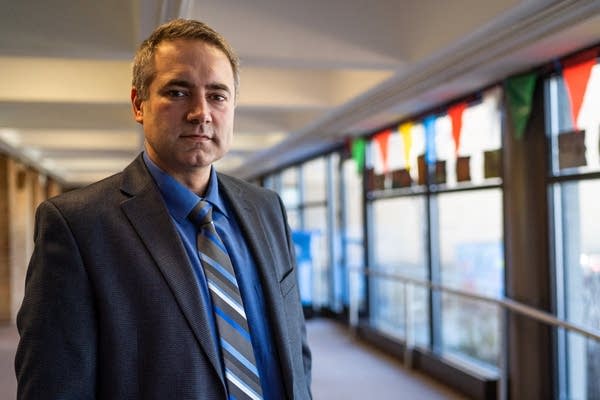Threats and burnout pushed a Teacher of The Year to resign education post

Brimhall Elementary principal Ryan Vernosh stands for a portrait inside Maxfield Elementary School, where he previously worked in St. Paul.
Evan Frost | MPR News 2019
Go Deeper.
Create an account or log in to save stories.
Like this?
Thanks for liking this story! We have added it to a list of your favorite stories.


